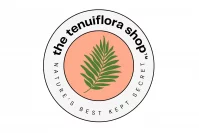Introduction
Soap making is one of the most rewarding crafts, blending creativity, chemistry, and nature into a product that feels both personal and useful. As more makers turn away from synthetic additives, the demand for natural ingredients in soap making has skyrocketed. Choosing the right botanicals and powders doesn’t just enhance the look and scent of your soap — it can elevate the skincare benefits, too.
In this guide, we’ll cover some of the best natural ingredients for soap making, why they matter, and how they compare to synthetic alternatives. Whether you’re a hobbyist or a small business owner, these ingredients will help you create bars that are as nourishing as they are beautiful.
Why Use Natural Ingredients in Soap?
Big-brand soaps are often loaded with detergents, artificial fragrances, and fillers that can strip skin of its natural oils. By contrast, natural ingredients:
- Provide skin-soothing benefits like hydration and gentle exfoliation
- Add natural colorants without synthetic dyes
- Deliver subtle, authentic scents
- Appeal to eco-conscious consumers seeking sustainable skincare options
When you choose nature, you’re not only giving your customers a better bar of soap — you’re also building trust in your brand.

1. Mimosa Tenuiflora Bark Powder
One of the most versatile botanicals in soap making is Mimosa Tenuiflora bark powder. Known for its regenerative and antimicrobial properties, this powdered bark has been used traditionally to support wound healing and calm irritated skin. In soap, it can:
- Add a gentle exfoliating texture
- Impart natural earthy tones
- Support formulations aimed at soothing sensitive or dry skin
If you’re interested in experimenting, check out our mimosa hostilis for sale — ethically sourced and ready for soap makers.
2. Calendula Petals
Calendula is a favorite among natural soap makers because of its anti-inflammatory and soothing properties. The petals can be infused into oils for subtle skincare benefits or sprinkled directly into soap batter for a golden, decorative touch.
Calendula is especially popular in baby soaps and sensitive-skin bars, offering a mild and gentle experience.
3. Turmeric Powder
Turmeric is more than a cooking spice — it’s a powerhouse for soap. Known for its bright yellow-orange color and antioxidant properties, turmeric powder can:
- Naturally tint your soap with warm golden tones
- Provide skin-calming support
- Pair well with essential oils like ginger or citrus
Turmeric’s popularity has also grown in skincare marketing, making it a valuable ingredient to highlight in your soap line.
4. Activated Charcoal
For detox-style soaps, activated charcoal is unbeatable. It’s known to draw out impurities from the skin, making it ideal for facial bars or acne-prone skin products.
Charcoal soaps also create visually striking designs — think deep black layers swirled with white or beige.
5. Lavender Buds
Lavender has stood the test of time as both a scent and a skincare additive. Dried lavender buds can be sprinkled into soaps for gentle exfoliation, while lavender essential oil offers calming aromatherapy benefits.
Lavender works beautifully in both cold process and melt-and-pour soap bases, making it one of the most versatile natural ingredients.
6. Oatmeal
Colloidal oatmeal is a soothing powerhouse, making it a must-have for soaps designed for dry, itchy, or sensitive skin. Oats provide a gentle exfoliation and help the skin retain moisture.
An oatmeal-honey soap is a classic example that combines natural nourishment with a comforting scent.
7. Spirulina Powder
For soap makers looking to experiment with natural colorants, spirulina powder provides a rich green hue. It’s also loaded with antioxidants, which adds a functional skincare angle to your bars.
Pair it with peppermint or eucalyptus essential oils for an energizing soap.
External Resource: Learn More About Natural Soap Making
If you’d like to dive deeper into natural soap crafting, this soap making guide from The Spruce Crafts offers a fantastic overview of methods, safety tips, and ingredient ideas.
Final Thoughts
In a world where consumers are more conscious of what they put on their skin, using natural ingredients in soap making is both a creative and ethical choice. From the soothing power of calendula to the regenerative properties of Mimosa Tenuiflora, each ingredient adds a unique touch to your handmade creations.
By sourcing quality botanicals and showcasing their benefits, you’re not only making beautiful soaps — you’re also building a brand people can trust.
